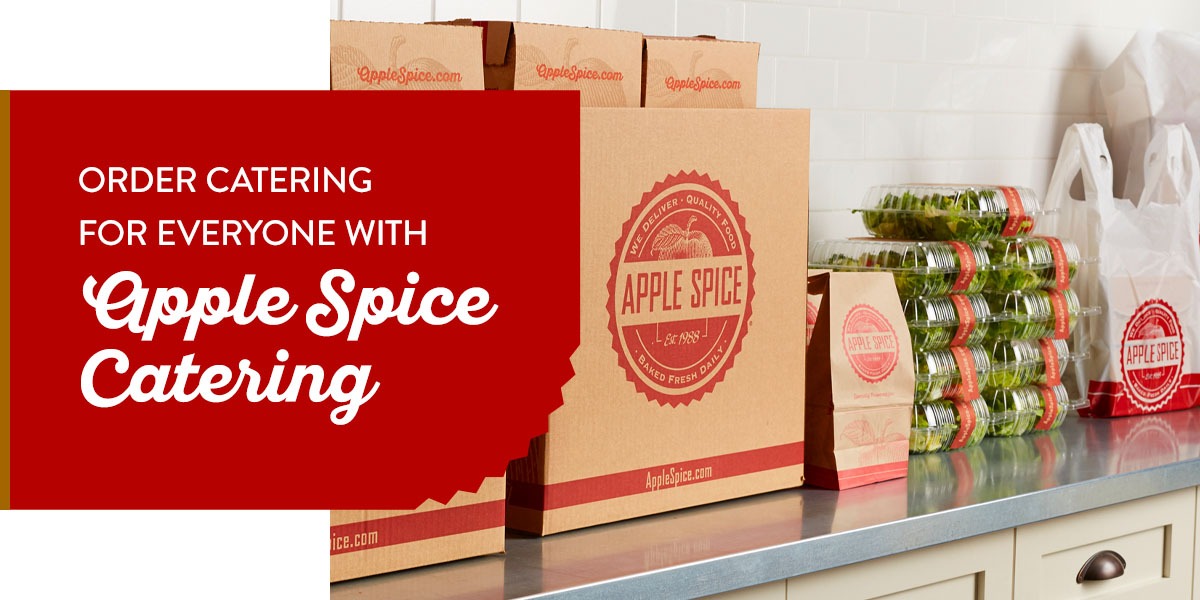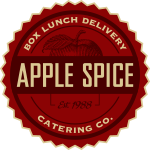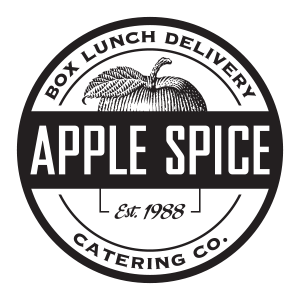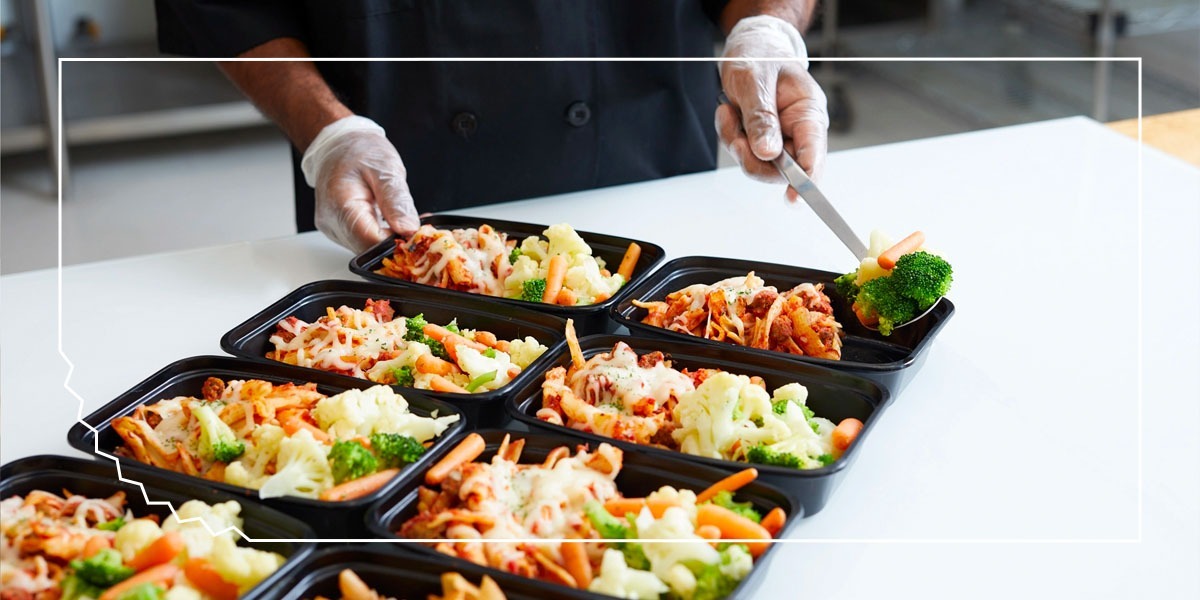
Catered company events are a fantastic way to improve employee morale and organizational engagement. However, the number of dietary restrictions you must know about can be daunting if you’re organizing an event. Neglecting guests’ nutritional needs can be severe. There are 32 million people in the United States with food allergies, and every year, 200,000 require emergency medical care opens in a new window for allergic reactions.
Knowing how to order catering for dietary requirements is critical for a successful event so everyone has something to eat and feels included in the festivities. With some simple tips and tricks, you can make your catering successful.
What Are Dietary Restrictions?
Dietary restrictions are limitations on what people can eat. People have dietary restrictions for many reasons, from lifestyle choices and allergies to religious and cultural beliefs. They can range from severe and potentially life-threatening to personal preference. Regardless of the reason for the restriction, it’s essential to provide for everyone when catering in a corporate setting.
Why Is Considering Dietary Requirements When Ordering Catering Important?
Food allergies are on the rise, and more than 170 foods are reported to opens in a new window cause allergic reactions. Ensuring there are no allergens present on people’s plates is essential at any event.
If someone comes to your office function and finds nothing on the menu for them, they’ll leave hungry and feeling left out. An inclusive menu is important. It makes employees feel heard and considered, boosting their engagement opens in a new window and satisfaction.
The Most Common Dietary Restrictions
You could encounter a range of dietary restrictions when you have an office of people to consider. Consider the following list of dietary restrictions.
Vegan
Vegans don’t eat any animal-derived food, like meat, dairy products, eggs and honey. Veganism is often linked to ethical beliefs, meaning many vegans would find catering mistakes upsetting. If you have vegan employees, always include plant-based protein and plenty of fruits and vegetables — both cooked and raw.
Vegetarian
Vegetarians avoid meat and fish, but there are a couple of variations:
- Pescatarian: Pescatarians don’t eat meat but will consume fish and seafood.
- Lacto-vegetarian: Lacto-vegetarians eat dairy products but do not consume meat, fish or eggs.
- Ovo-vegetarian: Ovo-vegetarians eat eggs but do not consume meat, poultry or fish.
Lactose Intolerant
Lactose is a sugar found in milk opens in a new window and dairy products. Lactose-intolerant people don’t have the enzyme needed to break down the lactose, and they can experience digestive problems when they do eat dairy products. While some lactose-intolerant people consume small amounts of dairy, many choose to remove it from their diets altogether.
Gluten Intolerant
Gluten is a protein found in wheat, rye and barley. Many people consume bread, pasta and other gluten products without problems. However, 1%-7% of people worldwide opens in a new window suffer from either celiac disease or non-celiac gluten sensitivity. For them, consuming gluten can lead to discomfort and sometimes medical complications. It’s also worth noting that people with gluten intolerance often show intolerances to other food groups, such as eggs and milk.
Diabetes
In the United States alone, 37.3 million people opens in a new window have diabetes. In simple terms, diabetes is an inability to produce or absorb insulin. People with diabetes must follow a controlled diet that includes moderate amounts of all the major food groups. Ensure you have high-fiber foods, lean proteins, dairy and vegetables when ordering catering for people with diabetes. Provide alternatives for sugary drinks, desserts, dressings and sauces.
Kosher and Halal Foods
Kosher and halal foods are those that conform to Jewish and Islamic dietary standards. The guidelines can be complex opens in a new window, and you must conduct thorough research if you have employees who eat kosher or adhere to the halal diet. However, the basic principles include the following:
- Kosher: The main principles include not mixing dairy and meat or preparing dairy and meat products with the same utensils. Only certified butchers can prepare meat products, and fish must have both scales and fins.
- Halal: Halal meats must be raised and harvested properly. Any food considered halal must be certified by an accredited bureau. Pork and alcohol are not permitted in a halal diet.
Ketogenic
The ketogenic — or keto — diet limits carbohydrate intake. Although many keto followers focus on weight loss, some choose this eating plan for medical benefits. If you’re catering to people on the keto diet, try and provide noncarbohydrate options and focus on protein, fats and nonstarchy vegetables.
Food Allergies
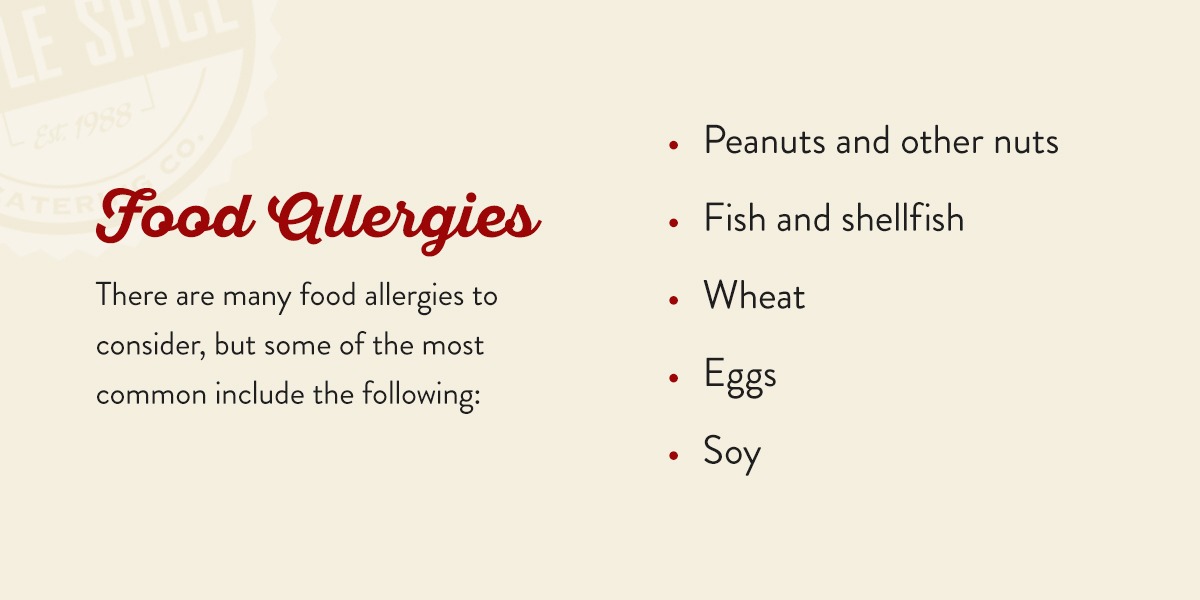
Food allergies can be unpleasant or severe — eliminating even trace amounts of an allergen is essential. There are many food allergies to consider, but some of the most common include the following:
- Peanuts and other nuts
- Fish and shellfish
- Wheat
- Eggs
- Soy
How to Handle Dietary Restrictions When Planning Catering
It’s easy to feel overwhelmed when catering to a large group. The following tips can help ensure you manage everyone’s dietary restrictions.
1. Communicate
Communication is vital to manage dietary restrictions. Give your team ample opportunity to communicate their needs and preferences. If you’re catering for a specific function, ask them to detail their requirements in their RSVP and include contact details in case you need to follow up or need more information.
2. Check With the Caterer
If you know the number of people with dietary restrictions, give your caterer an estimate of the special meals they need to prepare and determine if these options come with additional costs. Once everyone has sent in their RSVP, give your caterer the exact specifications. Open communication channels between you, your team and your caterer are critical to ensure you cover the relevant requirements.
3. Plan Your Menu
Plan your menu with dietary restrictions in mind. That way, you can aim for everyone to enjoy the same meal or create different versions of the dish, giving people a sense of being included.
4. Follow Up
If you need clarification on specifications, always follow up with your guests so you know what to provide. Encourage them to give you as much detail as possible if their restrictions are complex. Don’t be afraid to ask questions if you’re unfamiliar with their preferences.
People’s dietary requests can change, so follow up at least a week before the event to stay abreast of any changes. Remember to update your caterers on these changes.
5. Be Thorough
Treat all dietary restrictions as though they’re food allergies. While a slight misstep may seem inconsequential, it could be unpleasant for your guests, which is the last thing you want at your function.
6. Have a Back-Up
There’s always a chance that someone comes to your event who forgot to let you know about their dietary restrictions. Just in case, keep a few options in reserve for the most common dietary restrictions.
7. Check at the Event
On the day, check your list of attendees against their dietary requirements to ensure they’re catered for and that you can take action if there’s a miscommunication.
How to Ask About Dietary Restrictions
People’s dietary restrictions can be personal, and you must address them professionally and sensitively. While people appreciate that you care to ask, be mindful of the language you use, as you want your guests to feel included instead of guilty you’re going to the trouble.
Avoid asking for specific restrictions people could find insulting, such as “Would you prefer I use fat-free ingredients?” and opt for general questions like “Are there any dietary restrictions I should be aware of?” Let them tell you about their specific requests instead of making assumptions.
Order Catering for Everyone With Apple Spice Catering
Trying to cover every dietary requirement in-house can be a challenge. Apple Spice Catering can take the stress out of your next event. We offer everything from box lunch catering opens in a new window to hot food, special breakfasts and endless corporate options opens in a new window. You can leave the legwork to us and enjoy your next corporate event knowing everyone is cared for.
Contact us today to learn opens in a new window how we can help you create an inclusive and safe company event. Order online today and enjoy opens in a new window our range of delicious meal options delivered fresh for your peace of mind.
